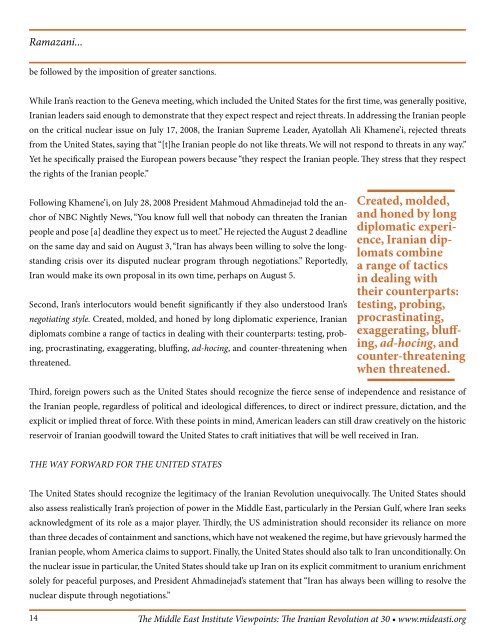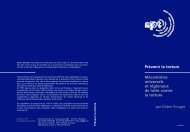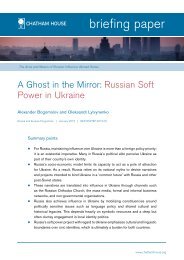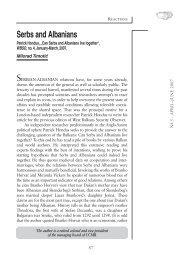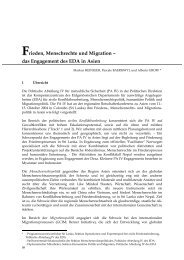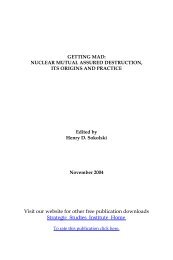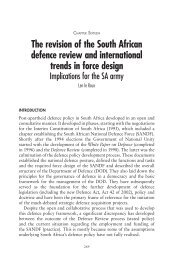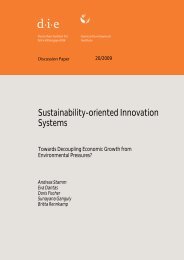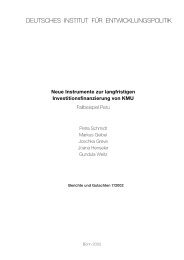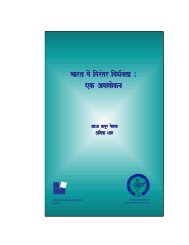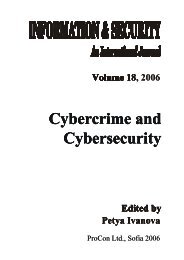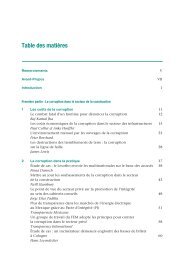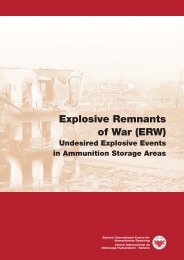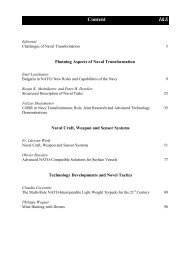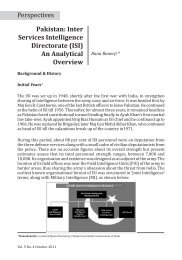The Iranian Revolution at 30
The Iranian Revolution at 30
The Iranian Revolution at 30
Create successful ePaper yourself
Turn your PDF publications into a flip-book with our unique Google optimized e-Paper software.
Ramazani...<br />
be followed by the imposition of gre<strong>at</strong>er sanctions.<br />
While Iran’s reaction to the Geneva meeting, which included the United St<strong>at</strong>es for the first time, was generally positive,<br />
<strong>Iranian</strong> leaders said enough to demonstr<strong>at</strong>e th<strong>at</strong> they expect respect and reject thre<strong>at</strong>s. In addressing the <strong>Iranian</strong> people<br />
on the critical nuclear issue on July 17, 2008, the <strong>Iranian</strong> Supreme Leader, Ay<strong>at</strong>ollah Ali Khamene’i, rejected thre<strong>at</strong>s<br />
from the United St<strong>at</strong>es, saying th<strong>at</strong> “[t]he <strong>Iranian</strong> people do not like thre<strong>at</strong>s. We will not respond to thre<strong>at</strong>s in any way.”<br />
Yet he specifically praised the European powers because “they respect the <strong>Iranian</strong> people. <strong>The</strong>y stress th<strong>at</strong> they respect<br />
the rights of the <strong>Iranian</strong> people.”<br />
Following Khamene’i, on July 28, 2008 President Mahmoud Ahmadinejad told the anchor<br />
of NBC Nightly News, “You know full well th<strong>at</strong> nobody can thre<strong>at</strong>en the <strong>Iranian</strong><br />
people and pose [a] deadline they expect us to meet.” He rejected the August 2 deadline<br />
on the same day and said on August 3, “Iran has always been willing to solve the longstanding<br />
crisis over its disputed nuclear program through negoti<strong>at</strong>ions.” Reportedly,<br />
Iran would make its own proposal in its own time, perhaps on August 5.<br />
Second, Iran’s interlocutors would benefit significantly if they also understood Iran’s<br />
negoti<strong>at</strong>ing style. Cre<strong>at</strong>ed, molded, and honed by long diplom<strong>at</strong>ic experience, <strong>Iranian</strong><br />
diplom<strong>at</strong>s combine a range of tactics in dealing with their counterparts: testing, probing,<br />
procrastin<strong>at</strong>ing, exagger<strong>at</strong>ing, bluffing, ad-hocing, and counter-thre<strong>at</strong>ening when<br />
thre<strong>at</strong>ened.<br />
Third, foreign powers such as the United St<strong>at</strong>es should recognize the fierce sense of independence and resistance of<br />
the <strong>Iranian</strong> people, regardless of political and ideological differences, to direct or indirect pressure, dict<strong>at</strong>ion, and the<br />
explicit or implied thre<strong>at</strong> of force. With these points in mind, American leaders can still draw cre<strong>at</strong>ively on the historic<br />
reservoir of <strong>Iranian</strong> goodwill toward the United St<strong>at</strong>es to craft initi<strong>at</strong>ives th<strong>at</strong> will be well received in Iran.<br />
THE WAy FoRWARD FoR THE UNITED STATES<br />
Cre<strong>at</strong>ed, molded,<br />
and honed by long<br />
diplom<strong>at</strong>ic experience,<br />
<strong>Iranian</strong> diplom<strong>at</strong>s<br />
combine<br />
a range of tactics<br />
in dealing with<br />
their counterparts:<br />
testing, probing,<br />
procrastin<strong>at</strong>ing,<br />
exagger<strong>at</strong>ing, bluffing,<br />
ad-hocing, and<br />
counter-thre<strong>at</strong>ening<br />
when thre<strong>at</strong>ened.<br />
<strong>The</strong> United St<strong>at</strong>es should recognize the legitimacy of the <strong>Iranian</strong> <strong>Revolution</strong> unequivocally. <strong>The</strong> United St<strong>at</strong>es should<br />
also assess realistically Iran’s projection of power in the Middle East, particularly in the Persian Gulf, where Iran seeks<br />
acknowledgment of its role as a major player. Thirdly, the US administr<strong>at</strong>ion should reconsider its reliance on more<br />
than three decades of containment and sanctions, which have not weakened the regime, but have grievously harmed the<br />
<strong>Iranian</strong> people, whom America claims to support. Finally, the United St<strong>at</strong>es should also talk to Iran unconditionally. On<br />
the nuclear issue in particular, the United St<strong>at</strong>es should take up Iran on its explicit commitment to uranium enrichment<br />
solely for peaceful purposes, and President Ahmadinejad’s st<strong>at</strong>ement th<strong>at</strong> “Iran has always been willing to resolve the<br />
nuclear dispute through negoti<strong>at</strong>ions.”<br />
14 <strong>The</strong> Middle East Institute Viewpoints: <strong>The</strong> <strong>Iranian</strong> <strong>Revolution</strong> <strong>at</strong> <strong>30</strong> • www.mideasti.org


